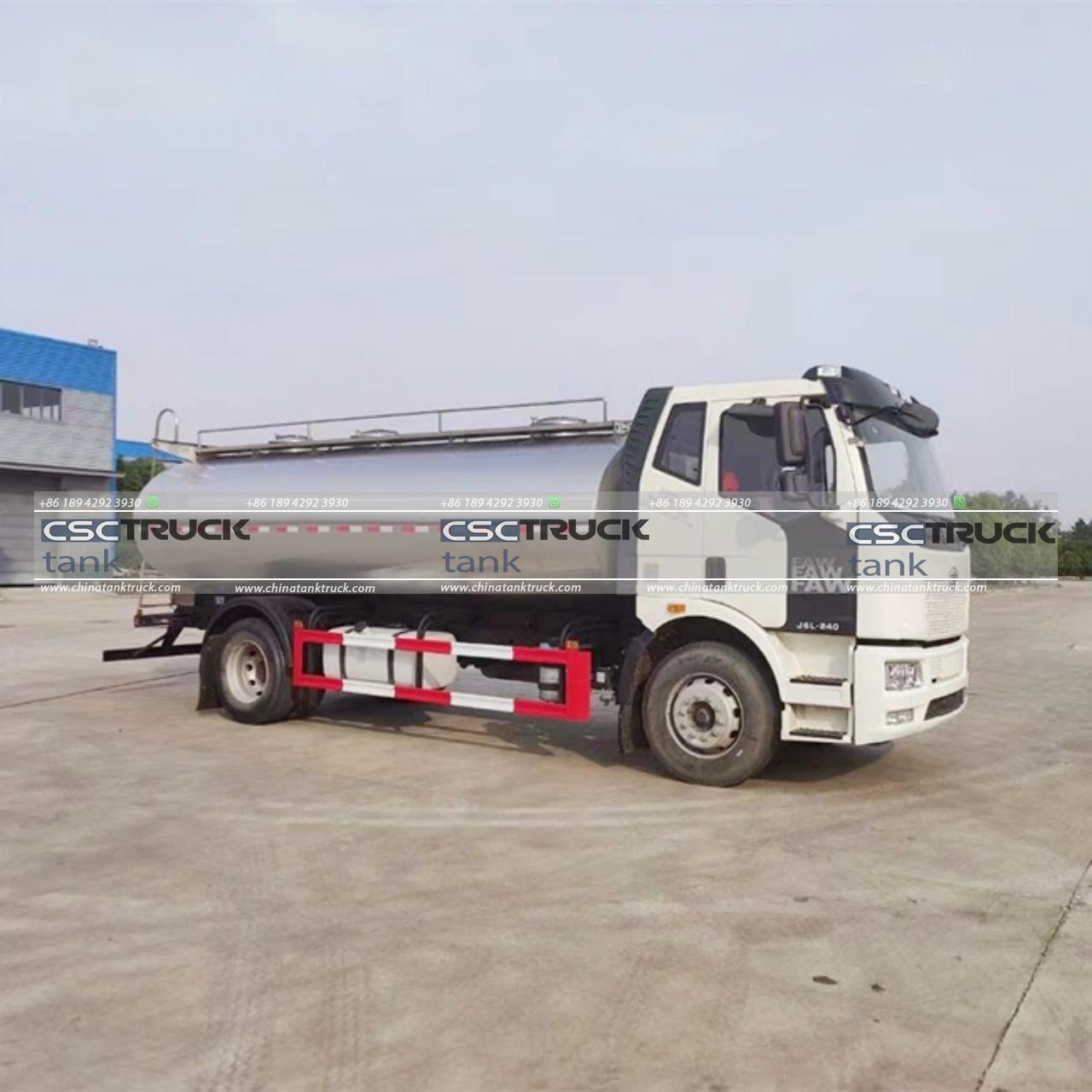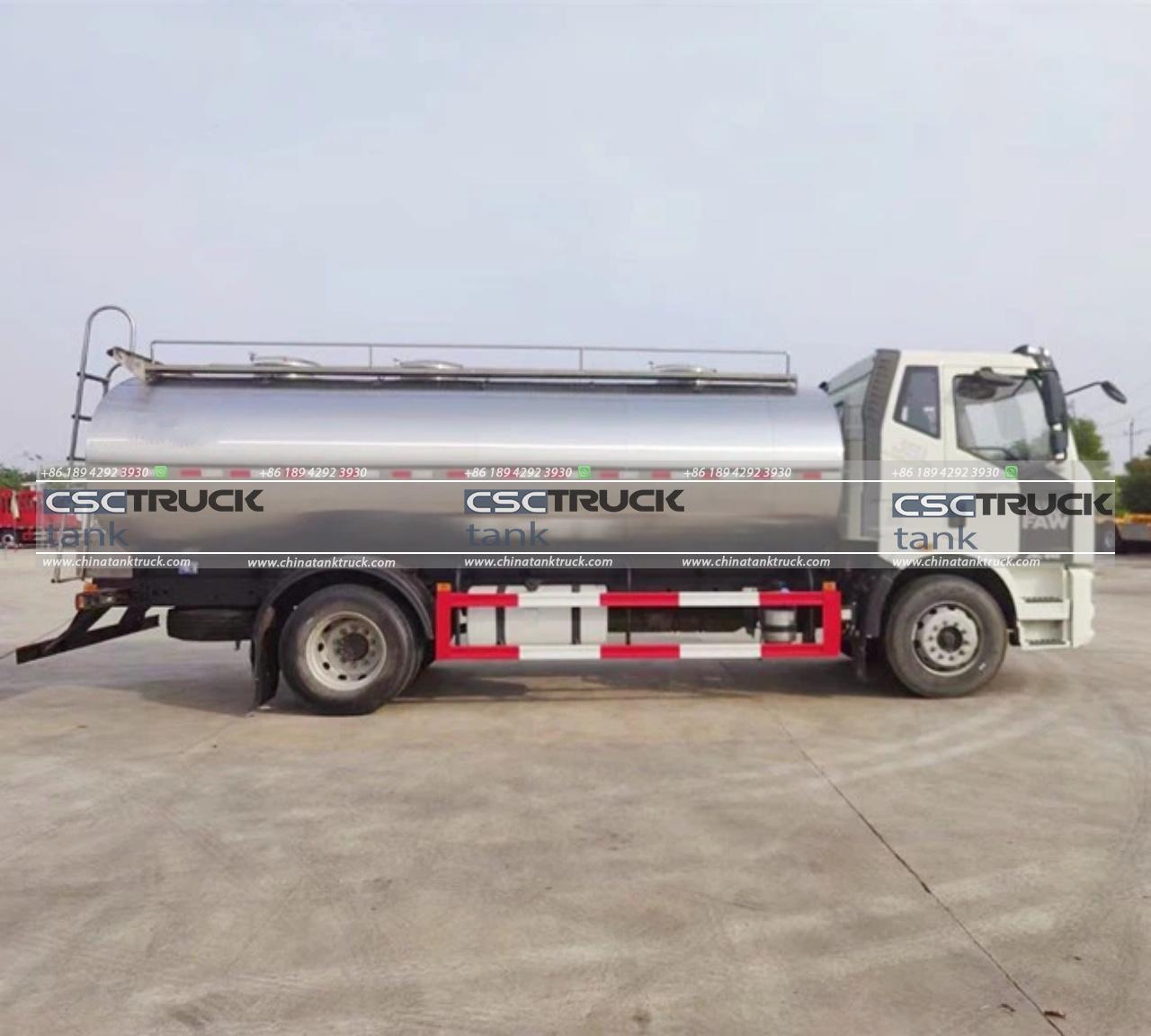What is a Milk Tanker Truck?
A milk tanker truck is a specialized vehicle designed for transporting large quantities of milk from dairy farms to processing facilities. These trucks play a crucial role in the dairy industry by ensuring that milk reaches consumers safely and efficiently. In this article, we will explore the various aspects of milk tanker trucks, their design, functionality, importance in the dairy supply chain, and the challenges they face.
Design and Structure
Milk tanker trucks are typically large, heavy-duty vehicles equipped with specialized tanks specifically designed to transport liquid dairy products. The tanks are made from stainless steel, which is preferred for its durability, ease of cleaning, and corrosion resistance. This material ensures that the milk remains uncontaminated during transportation and meets strict health and safety standards.
These trucks can vary in size and capacity, ranging from smaller regional vehicles to large interstate carriers capable of transporting thousands of gallons of milk at a time. The size of the truck often depends on the scale of dairy operations and the distance to be covered between farms and processing plants.

Functionality and Operation
The operation of a milk tanker truck begins at the dairy farm, where it is loaded with fresh milk. Modern tanker trucks are equipped with pumps and hoses that allow for efficient loading and unloading of milk without compromising its quality. Once loaded, the milk is transported to processing facilities where it undergoes pasteurization, homogenization, and packaging before distribution to consumers.
The design of milk tanker trucks ensures that the milk remains at a constant temperature during transit, typically chilled to maintain freshness and prevent spoilage. Some advanced trucks may also feature temperature monitoring systems to ensure that the milk stays within the optimal temperature range throughout the journey.
Importance in the Dairy Supply Chain
Milk tanker trucks are indispensable in the dairy supply chain, facilitating the movement of milk from farms to processing plants with minimal delay. Their efficiency and reliability are crucial for maintaining the freshness and quality of milk, which is a perishable product. Timely transportation ensures that dairy products meet regulatory standards and consumer expectations regarding freshness and safety.
In addition to transporting raw milk, tanker trucks also play a vital role in the distribution of processed dairy products such as pasteurized milk, yogurt, and cheese to retail outlets and distribution centers. Their versatility allows them to adapt to various types of dairy products and distribution needs within the industry.

Challenges Faced by Milk Tanker Trucks
Despite their importance, milk tanker trucks face several challenges that can affect their operation and efficiency. One significant challenge is maintaining strict hygiene standards throughout the transportation process. Any contamination or improper cleaning of the tanker can compromise the quality and safety of the milk, leading to potential health risks for consumers.
Another challenge is navigating varying road conditions and weather extremes, especially in regions with harsh winters or challenging terrain. Ensuring the safety of both the truck drivers and the milk cargo requires careful planning and adherence to safety protocols.
Furthermore, fluctuating fuel costs and regulatory requirements regarding emissions and transportation routes can impact the operational costs and logistics of milk tanker trucks. Dairy companies must navigate these challenges while maintaining cost-effective and environmentally sustainable transportation practices.
Innovations and Future Trends
The dairy industry continues to innovate in the transportation sector, with advancements aimed at improving efficiency, sustainability, and safety. Innovations such as GPS tracking systems, real-time monitoring of milk quality parameters, and automated cleaning processes are becoming more prevalent in modern milk tanker trucks.
There is also a growing emphasis on sustainability, with efforts to reduce carbon emissions and environmental impact through the use of alternative fuels and energy-efficient technologies. Some dairy companies are exploring the use of electric or hybrid milk tanker trucks as part of their commitment to sustainability and reducing their carbon footprint.

Conclusion
In conclusion, a milk tanker truck is much more than just a vehicle for transporting milk—it is a critical component of the dairy supply chain that ensures the safe and efficient delivery of dairy products from farm to table. The design, functionality, and operation of these specialized trucks reflect the dairy industry’s commitment to quality, safety, and sustainability.
As technology advances and consumer demands evolve, milk tanker trucks will continue to grow to meet the challenges and opportunities of the modern dairy market. Their role in transporting milk remains essential, supporting the dairy industry’s growth and ensuring that consumers can enjoy fresh, high-quality dairy products every day.

